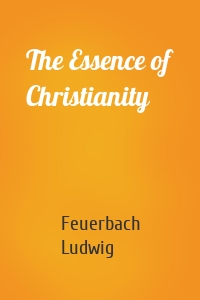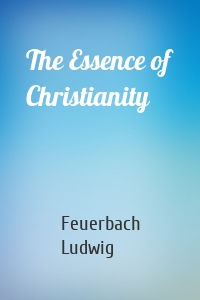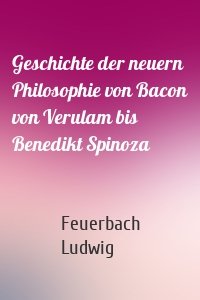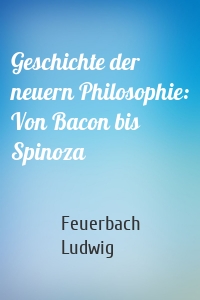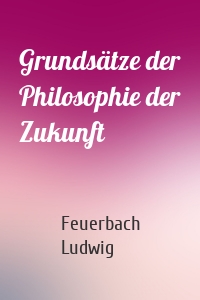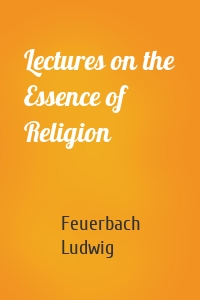Feuerbach Ludwig
7 кн.
The Essence of Christianity
The Essence of Christianity is a book by Ludwig Feuerbach in which he explains his philosophy and critique of religion. Feuerbach's theme was a derivation of Hegel's speculative theology in which the Creation remains a part of the Creator, while the Creator remains greater than the Creation. In Part One, Feuerbach developed what he calls the «true or anthropological essence of religion», treating of God in his various aspects. Thus God is nothing else than man: he is, so to speak, the...
| Автор | Feuerbach Ludwig |
The Essence of Christianity
Ludwig Feuerbach (1804-1972), the immensely influential German philosopher of the 19th century, wrote his most important work «The Essence of Christianity» in 1841. Combined with his numerous other writings, «The Essence of Christianity» contributed to the development of dialectical materialism. Feuerbach is often considered the philosopher who bridged Hegel and Marx. Here is his sharp criticism of Christianity. A staunch atheist, Feuerbach argues that Christianity has wrongfully «projected» and...
| Автор | Feuerbach Ludwig |
The Fiery Brook
Central essays by Feuerbach, advancing his humanist and atheist thought. Ludwig Feuerbach’s departure from the traditional philosophy of Hegel opened a door for generations of radical philosophical thinkers, foremost among them the young Karl Marx. Indeed, much of early Marx is unintelligible without reference to certain fundamental Feuerbachian texts. The selections in this volume, few of them available in translation elsewhere, reveal Feuerbach’s fundamental criticisms of the ‘old philosophy’...
| Автор | Feuerbach Ludwig |


